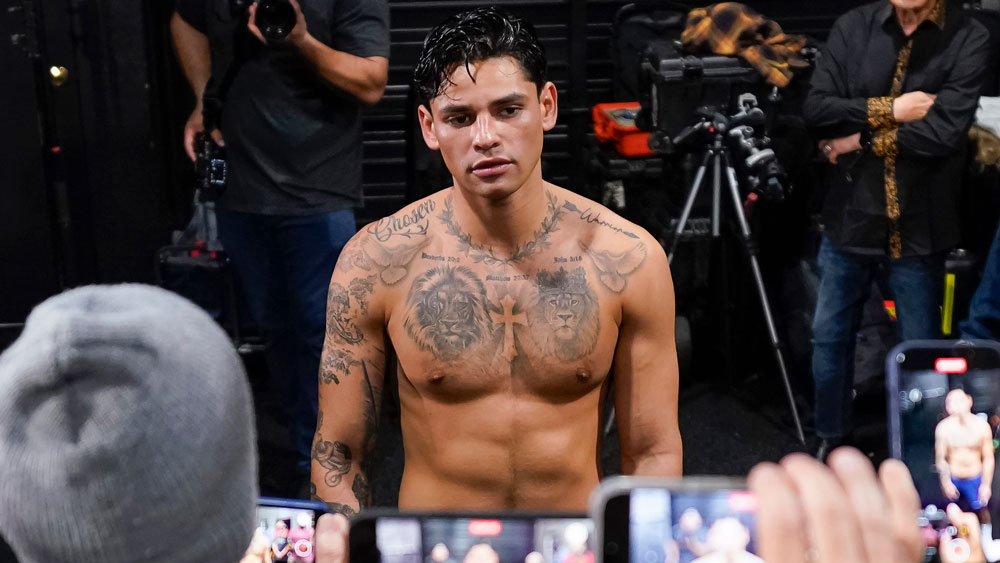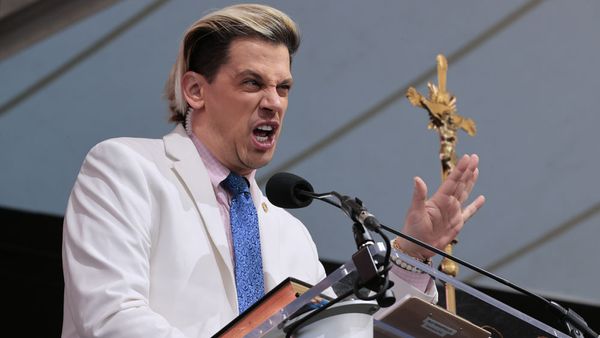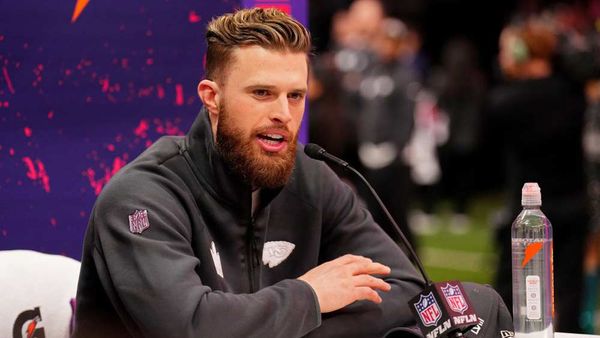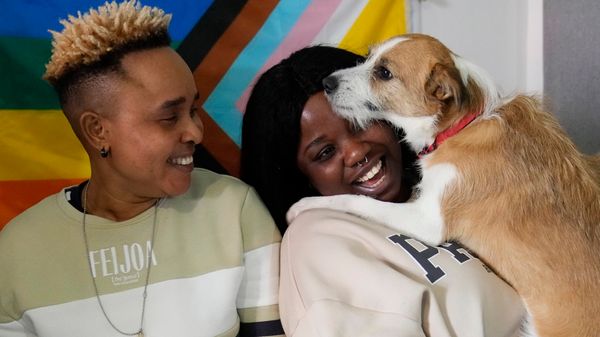September 1, 2013
'It Really Works!' Gay-to-Straight Conversion
Michael Cox READ TIME: 4 MIN.
They may have their detractors. States have started prohibiting health practitioners from attempting to make gay youth straight. Long established conversion mill Exodus International gave up and closed up shop last June. But one ex-gay advocacy group with a disregard for science and the strength to ignore facts has, produced a video documenting that they claim to be a successful gay-to-straight conversion.
Since their founding last spring, prominent ex-gay advocacy group, Voice of the Voiceless (VoV), has asserted that there are "thousands of ex-gays" who have been intimidated into staying in the walk-in ex-gay closet because they fear "shame and threats from dangerous gay activists." But, in a VoV video produced to promote their epically failed first annual "Ex-Gay Pride Rally" held in Washington, D.C. last July, VoV has found their poster child, a cleaned-up drug addict and former drag queen named Trace McNutt, an "ex-gay" unafraid to step forward and declare himself "cured."
The VoV video that contains McNutt's story is a stylistic mixture of cin�ma v�rit� and homage to a soviet era infomercial hosted by Christopher Doyle, president of Voice of the Voiceless, who presumably lost his eyebrows along with his same-sex attraction.
"Nine years ago, I came out of homosexuality" says Doyle "and today I'm living my dream! I'm married to my beautiful wife, and together, we have three wonderful children."
Las week in a letter published on the VoV website, Doyle publicly called out the former leader of the now defunct Exodus International - "the largest and most influential ex-gay ministry" - for failing because they didn't use "cutting-edge therapeutic techniques" or pursue "advanced degrees in counseling or psychology."
Forgetting to reference or cite this in the video, Doyle patriotically takes us to the National Mall in Washington, D.C. - the only place in America where ex-gays are a protected class.
"We're gonna find some other ex-gay Americans celebrating Ex-gay Pride month," Doyle enthusiastically cheers, broadly sweeping his arm in an invitational gesture. "Come on with us."
What Doyle does find is a handful of foreign tourists, who are amiable, if not a little confused, and they seem excited to be in a video.
"Alright, we're here with an international audience here - celebrating Ex-Gay Pride month," Doyle speaks into the camera. Then he turns to the tourists. "Are you guys aware that July is national Ex-gay Pride month?"
A young, blond girl hold up a lanyard she's wearing around her neck. "We are from a different country."
Though they all admit they've never heard of an ex-gay, they are more than willing to smile and nod their heads at Doyle's subsequent questions.
Enter the "star" of the video, proud ex-gay Trace McNutt.
"Trace was a drag queen," Doyle informs us, "on a downward spiral to death. But one day he walked in to a loving, supportive community and today he's a changed, transformed man."
"I had a very dysfunctional family," McNutt explains, referencing the wounds from childhood he feels led him to become gay, an overbearing mother and an absentee father.
"My mother was very abusive, very dominant," McNutt elucidates. "Not only did I not have the bonding with my father, I was completely, utterly, totally rejected by other boys my own age..."
McNutt believes that because he didn't have enough loving support from men in his childhood, he became gay. Because his childhood was really bad, he became really gay.
"I decided I was going to become a satanic version of a drag queen in the gay community."
He explains he "became obsessed with the royalty of the gay community. And that would be drag queens."
When devastating fortune came down hard on McNutt, he was surprised to find that his fellow drug addicts in the club culture were nowhere to be found. But a group of religious folk was willing to take him in, asking nothing more from him then to be an example of their program.
"So I went to this seminar and I listened to these different speakers throughout the day talk about homosexuality and the causes of it," McNutt illuminates. "I had no natural, healthy bonding with men... There were circumstances that contributed to my homosexuality, and at this point, from now on, it was my choice.
"I was not born gay," proclaims McNutt.
"I walked away from the gay community," McNutt declares. "I packed up the make-up. I threw out the clothes."
Admittedly, this was not the best time in McNutt's life to become an ex-gay, but he didn't let this stop him.
"I had to get on the phone that morning," McNutt recounts, "because I had shows booked that entire night - plus hosting a male underwear fashion show."
When McNutt went to church they "welcomed [him] with open arms." He was particularly attracted to one parishioner, Adam. McNutt says, "I could tell from the look in his eye... he wasn't freaked out by me."
McNutt ceased to be gay when he started bonding with warm, manly men.
"They have loved me," he testifies. "Some of the most masculine, butchest men reached into my life - and loved me."
In the end, McNutt looks into Doyle's eyes and champions the catch-phrase that Exodus International abandoned:
"Change is Possible." See for yourself





